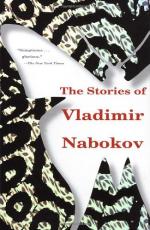|
This section contains 5,019 words (approx. 17 pages at 300 words per page) |

|
SOURCE: “The Return of Charles Kinbote: Nabokov on Rorty,” in Philosophy and Literature, Vol. 23, No. 1, April, 1999, pp. 65-77.
In the following criticism of philosopher Richard Rorty's reading of Nabokov, Stow argues Rorty is, himself, a Nabokovian type.
In 1996, Vladimir Nabokov, an author who continually claimed that a “work of art has no value whatsoever to society,”1 paradoxically found himself at the center of a debate between Alexander Nehamas and Richard Rorty over the proper “political” interpretation of Pale Fire.2 The background to this dispute—which also involved such luminaries as Martha Nussbaum and Richard Posner3—concerned the extent to which it might plausibly be claimed that immersing oneself in the works of “Great Authors” might serve to make one a better citizen of a democratic polity. Rorty, for the record, argued that it would; Nehamas that it would not. Setting the broader debate aside, this article will focus...
|
This section contains 5,019 words (approx. 17 pages at 300 words per page) |

|


